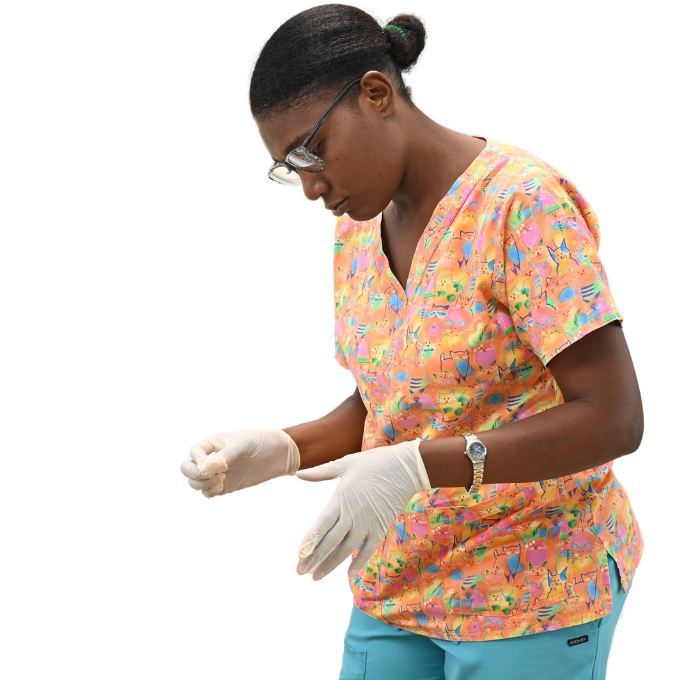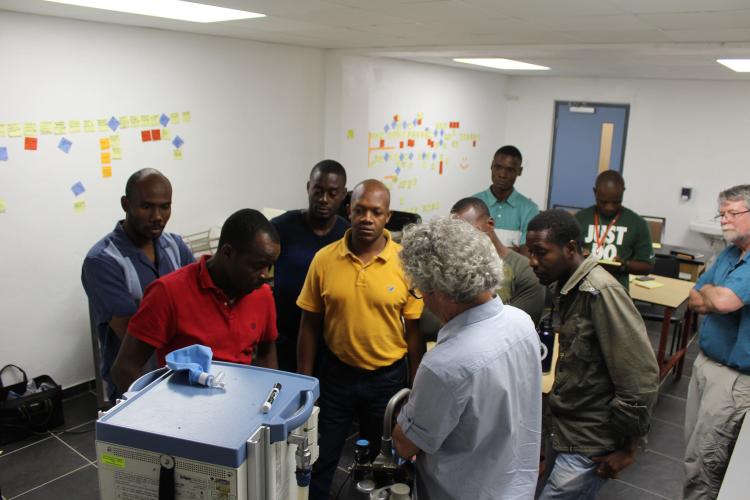“Health equity means providing the same quality of care for all people, whether you are poor or rich.”
Your donation will help Head Emergency Room Nurse Geneviève Edumé and her team care for patients at the only 24/7 ER in southern Haiti.


This week, SBH’s Biomedical team hosted a group of Biomedical professionals from all around Haiti. Dan Schuster, who works for both Rotary International and Canado Technique - a technical school in Port-au-Prince, facilitated the training along with St. Boniface’s Biomedical Director Tom Monaghan.
“I have been working in Biomed in Haiti for seven years. When I found that St. Boniface had received USAID funding and saw the opportunity for collaboration, I jumped at the opportunity. I’ve worked mostly in developing the structures for higher education and continuing education classes” Dan explained, while exposing the circuit board of an autoclave. “I consider St. Boniface’s program as closer to a post-education job, which I am excited to see.”
“We chose to focus on common devices you can find in Haitian hospitals: tabletop sterilizers, oxygen concentrators, basics of ventilation, and basic concepts of how anesthesia machines work” says Tom Monaghan, who designed the three day program.
Jojo Cena, a participant of this training, has worked at Albert Schweitzer hospital since October 2000. “I started working with this training program when I heard about the opportunity in Pignon and now I help lead the department. I’ve had the chance to see many types of trainings, and this has been so helpful as a thorough refresher course.”
Evenel Osias, the biomedical site manager for Hospital Bienfaisance de Pignon, echoed Jojo’s sentiments. “We don’t always have the chance to work on equipment. Because our hospitals never have extra equipment for us to practice on. Everything they have is in use. This is an incredible resource at St. Boniface”
“The REPARE program is much needed in Haiti,” notes Dan Schuster. “It’s hard to sell people on the importance of having technicians. But as hospitals service patients in better ways, they also become more technologically complicated. You can’t expect a hospital to function at a high standard without also supporting technicians. But as hospitals service patient’s in better ways, they also become more technologically complicated. You can’t expect a hospital to function at a high standard without also supporting technicians.”
Your donation will help Head Emergency Room Nurse Geneviève Edumé and her team care for patients at the only 24/7 ER in southern Haiti.
